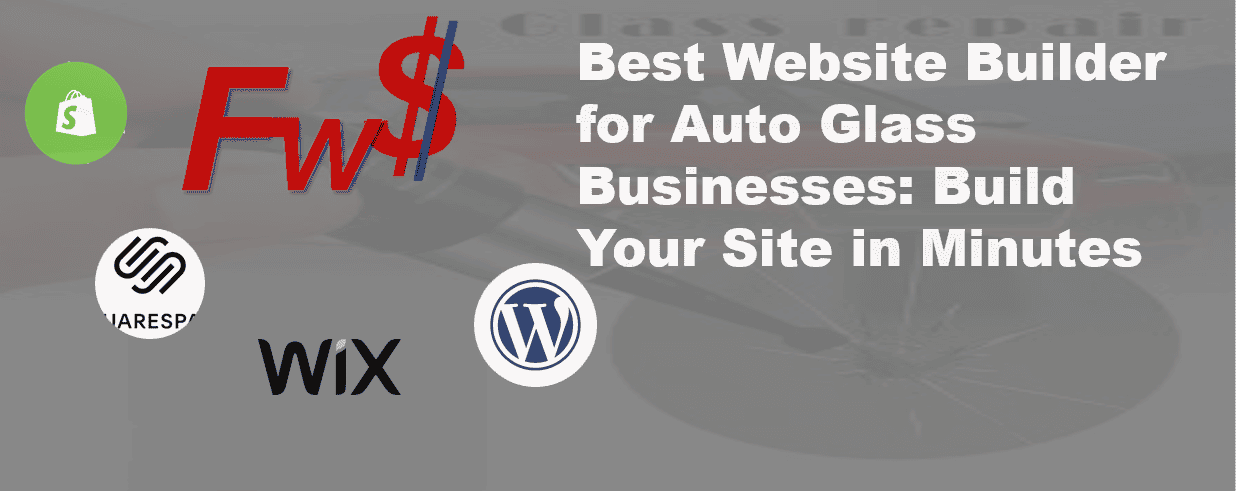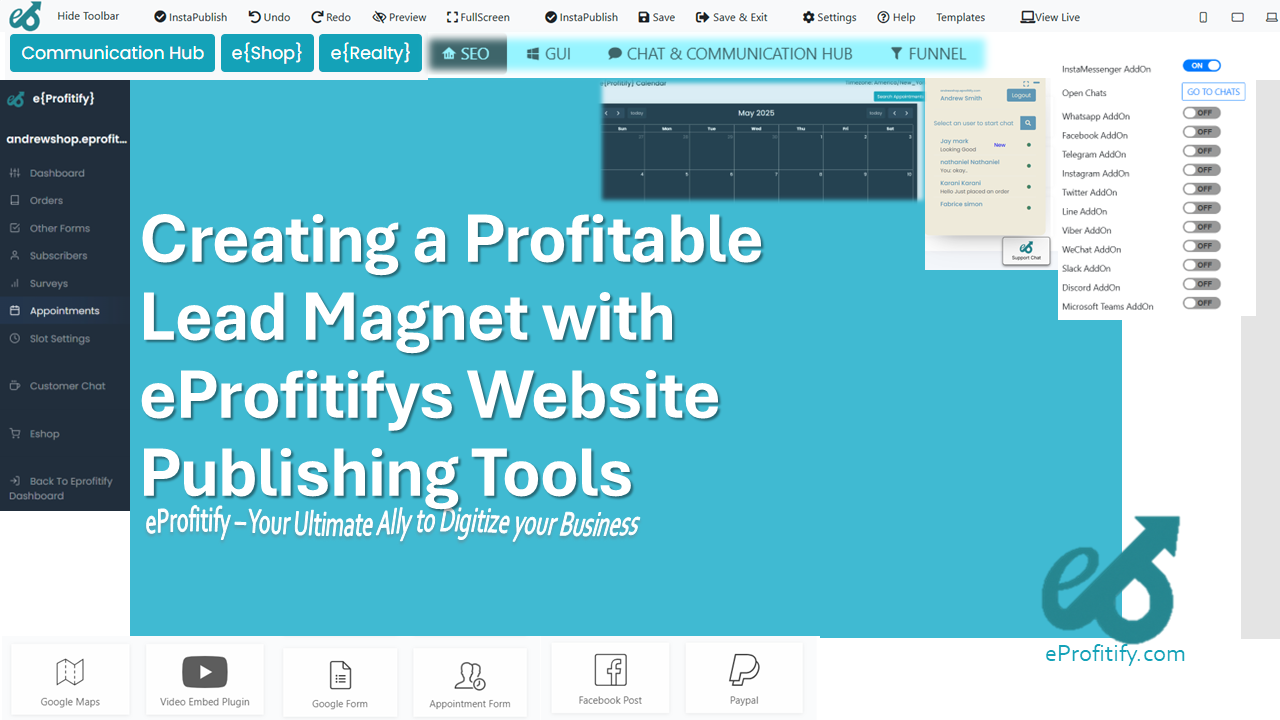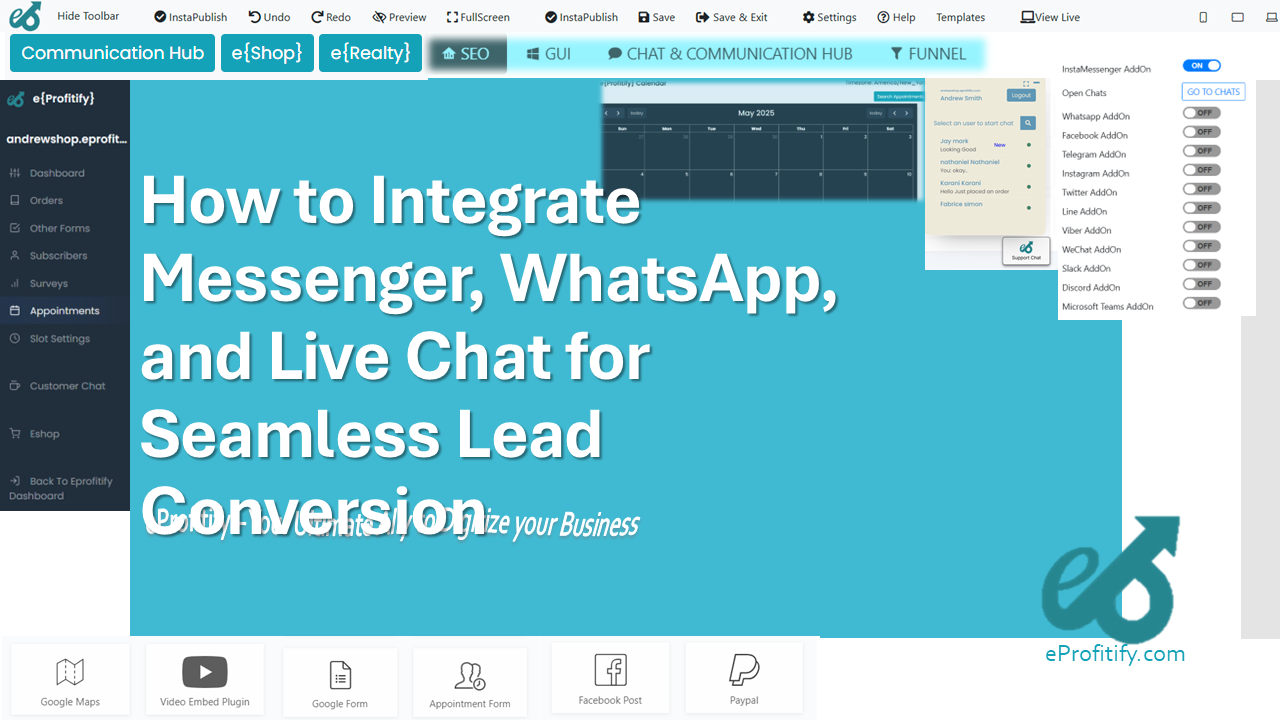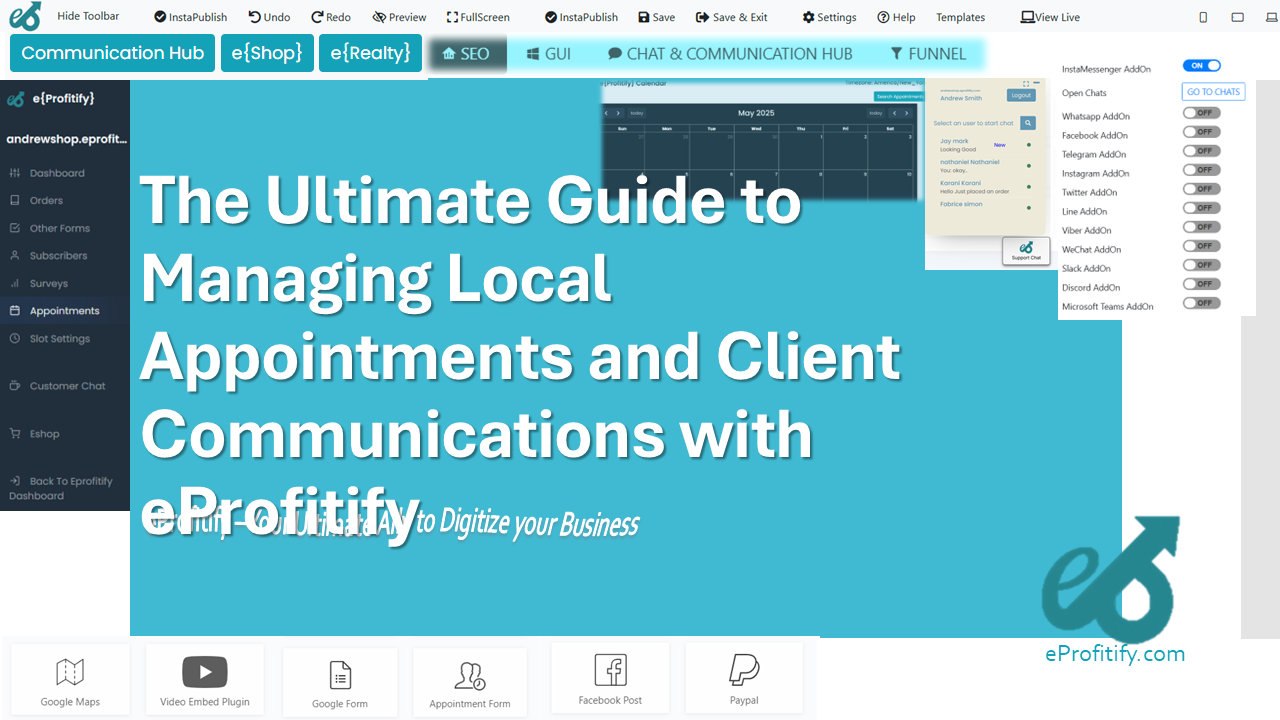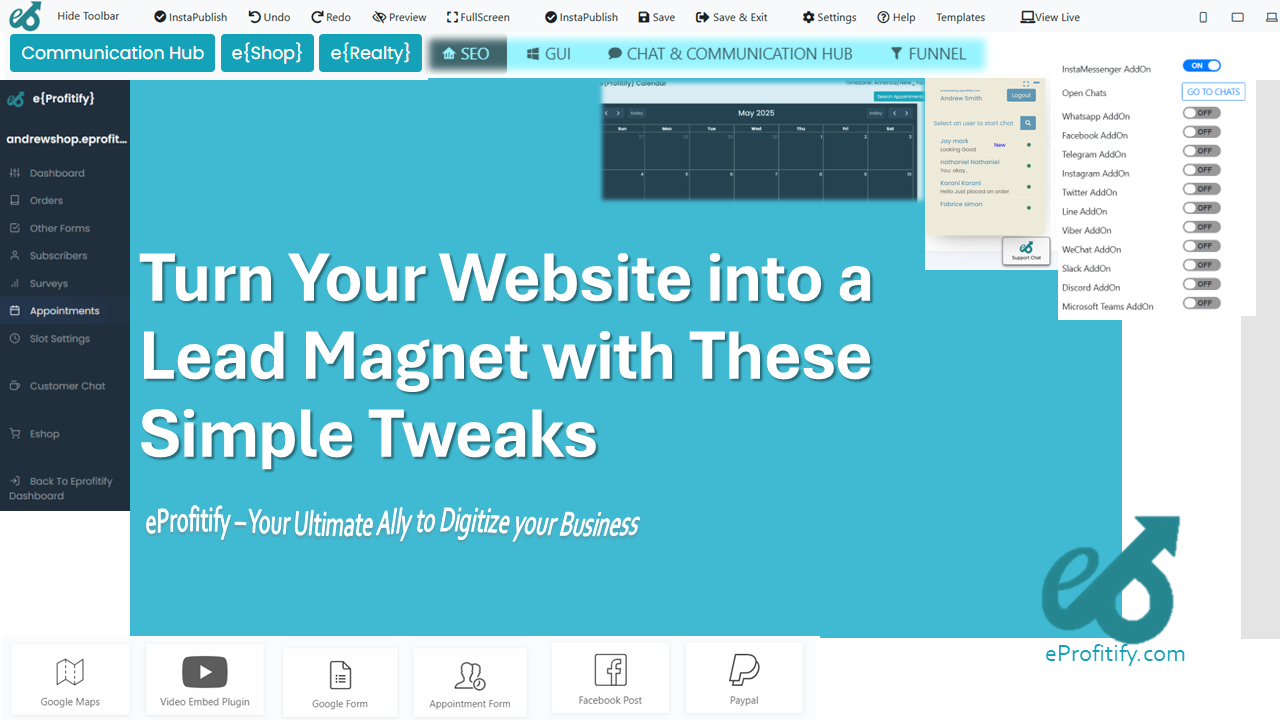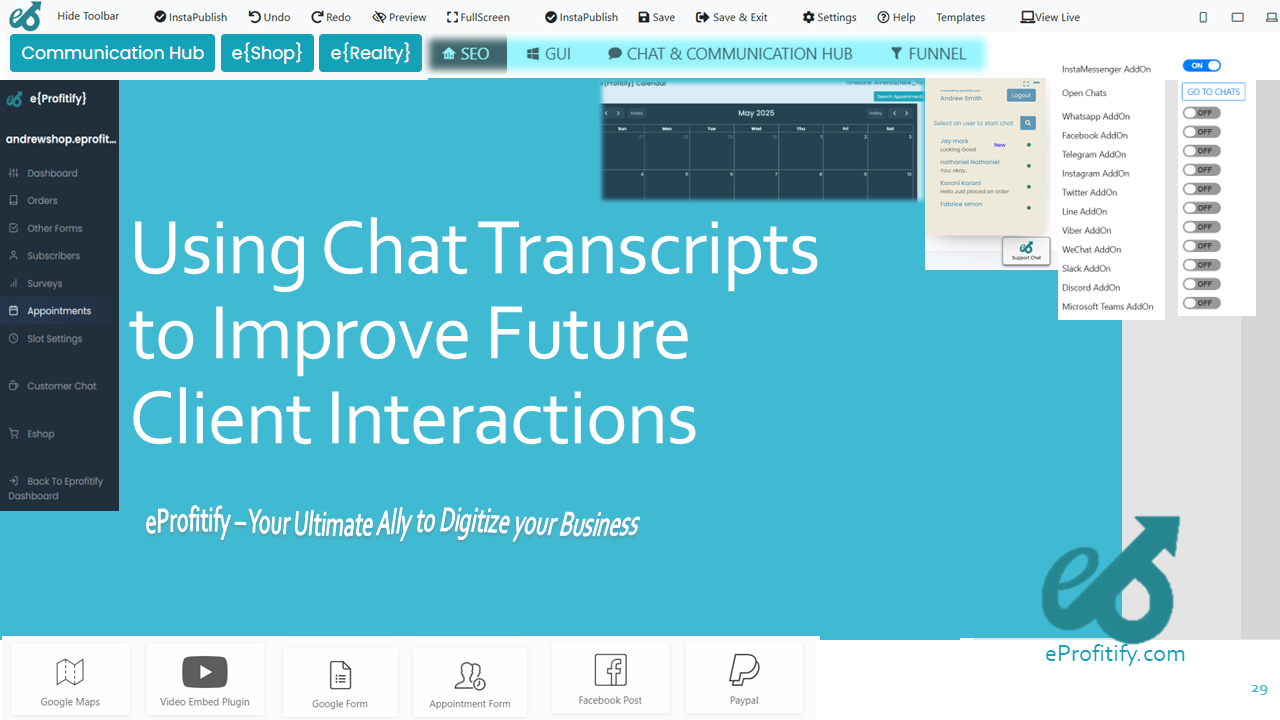Setting Career Goals and Tracking Progress in Real Estate
Schedule a LIVE Zoom call with an eProfitify Expert.
Setting Career Goals and Tracking Progress in Real Estate: A Path to Success with eProfitify
The real estate industry is one of the most dynamic and competitive sectors, where success often hinges on strategic planning, adaptability, and consistent effort. With over 3 million active real estate licensees in the U.S. alone (National Association of Realtors, 2023) and a median annual income of $54,000 for agents (Bureau of Labor Statistics, 2022), standing out requires more than charm and market knowledge—it demands clear career goals and a structured approach to tracking progress. In this guide, we explore how real estate professionals can set actionable objectives, measure growth, and leverage tools like eProfitify, a leading website publishing and management platform, to streamline operations and boost productivity.
The Importance of Setting Career Goals in Real Estate
Goal setting provides direction, motivation, and a framework for decision-making. According to a study by the Harvard Business Review, individuals who set specific, written goals are 30% more likely to achieve them compared to those who don’t. For real estate agents, goals might include closing a set number of transactions annually, increasing commission income, expanding a client base, or earning professional certifications.
Key areas for goal setting in real estate include:
- Financial Targets: Aiming for a specific income or transaction volume (e.g., "$500,000 in sales by Q4").
- Client Acquisition: Growing a prospect list or improving lead conversion rates.
- Skill Development: Mastering negotiation techniques or obtaining niche certifications.
- Work-Life Balance: Reducing administrative tasks to focus on client relationships.
Statistics show that agents who set quarterly goals earn 22% more on average than those who don’t (National Association of Realtors, 2022). However, goal-setting alone isn’t enough; consistent tracking and adaptation are critical.
Best Practices for Setting Real Estate Career Goals
1. Use the SMART Framework
Goals should be Specific, Measurable, Achievable, Relevant, and Time-bound. For instance, instead of “close more deals,” aim for “Close 15 residential properties worth $10M total by December 2024.”
2. Break Down Long-Term Goals into Milestones
Annual targets can feel overwhelming. Break them into monthly or weekly actions, such as generating 50 leads per month or scheduling three client meetings weekly.
3. Align Goals with Market Trends
Adapt objectives to reflect local market conditions. For example, capitalize on rising demand for vacation homes or commercial properties post-pandemic.
4. Leverage Mentorship and Training
Agents with mentors report 40% faster career progression (Real Estate Business Institute, 2021). Pair goals with educational resources or coaching.
Tracking Progress: Metrics That Matter
Tracking progress ensures accountability and highlights areas needing adjustment. Key performance indicators (KPIs) for real estate professionals include:
- Lead Conversion Rate: The percentage of leads that become clients.
- Average Days on Market: Measures efficiency in closing deals.
- Client Satisfaction Scores: Feedback from post-transaction surveys.
- Revenue Growth: Monthly/quarterly income compared to targets.
A 2023 study by Real Trends found that agents who monitor KPIs weekly are 60% more likely to exceed annual income goals. However, manual tracking is time-consuming. This is where technology steps in.
The Role of Technology in Goal Achievement
Modern real estate professionals rely on digital tools to automate tasks, manage relationships, and analyze data. A staggering 87% of top-performing agents use CRM software (DIGITS, 2022), and eProfitify stands out as a comprehensive solution.
eProfitify: The All-in-One Platform for Real Estate Success
eProfitify is a game-changer for agents looking to unify their workflows. Its features align perfectly with goal-setting and tracking:
-
CRM Integration:
Track client interactions, segment leads, and automate follow-ups. Agents using CRMs report a 34% increase in conversion rates (Capterra, 2023). -
Appointment Management System:
Sync calendars, send reminders, and reduce no-shows. Automating scheduling saves agents 8+ hours monthly. -
Instant Messaging:
Communicate with clients in real-time via a secure platform, improving response times and trust. -
Ecommerce Tools:
List properties, process payments, and sell digital products (e.g., e-books, webinars) directly from your website. -
Analytics Dashboard:
Monitor KPIs like website traffic, lead sources, and conversion rates in real time. -
Website Publishing:
Create SEO-optimized websites to showcase listings and generate organic leads—a crucial asset, as 90% of homebuyers start their search online (NAR, 2023).
How eProfitify Streamlines Goal Achievement
By centralizing critical tasks, eProfitify frees agents to focus on high-impact activities. For example:
- Automated Follow-Ups: Nurture leads without manual effort.
- Progress Reports: Generate weekly insights aligned with KPIs.
- Time Management: Reduce administrative work by 60%, enabling more client-facing tasks.
Agents using integrated platforms like eProfitify achieve 30% higher client retention rates by delivering consistent, personalized experiences.
Conclusion: Elevate Your Real Estate Career with Purpose and Precision
Setting career goals and tracking progress transforms aspirations into measurable results. In an industry where time is money and competition is fierce, tools like eProfitify provide the infrastructure needed to scale efficiently. From CRM to ecommerce, its features empower agents to close more deals, build lasting client relationships, and stay ahead of trends.
As the market evolves, embracing technology isn’t optional—it’s essential. Whether you’re a new agent aiming for your first sale or a seasoned broker targeting seven-figure growth, integrating structured planning with platforms like eProfitify will pave the way for sustained success. Start today by defining your SMART goals, tracking your KPIs, and letting innovation handle the rest.



